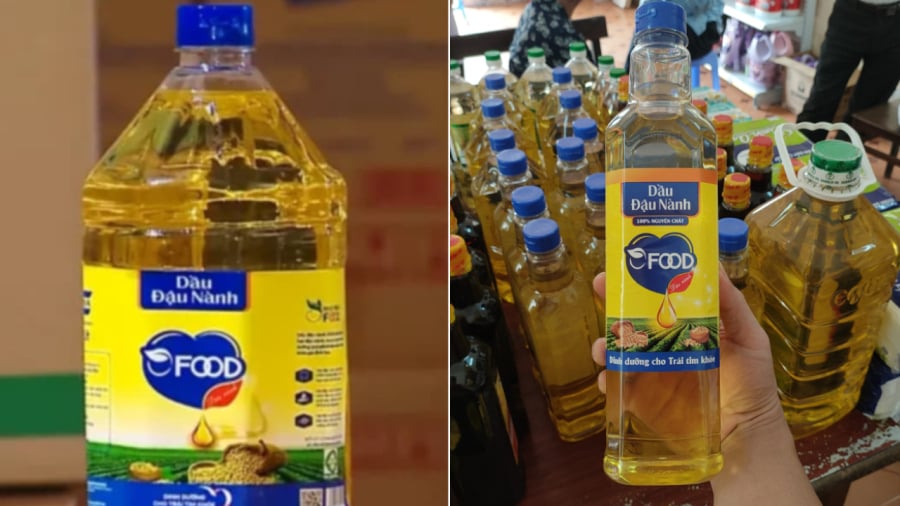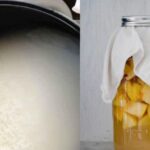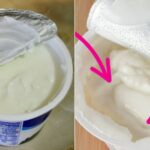According to VTV, the police of Hung Yen province have recently busted a large-scale counterfeit cooking oil ring. Specifically, it was discovered that the Ofood cooking oil products of Nhat Minh Food Import and Export Company were made from oil intended for animal feed production. Prior to this revelation, these products were widely sold on the market. The amount of counterfeit goods has accumulated to tens of thousands of tons.
The product was advertised as a food-grade cooking oil fortified with vitamin A. However, upon testing, no vitamins were detected, contrary to their claims. Moreover, this oil failed to meet food safety standards for human consumption and was only suitable for animal feed production.
The perpetrators targeted collective kitchens, restaurants, and villages specializing in manufacturing snacks and treats for children. Their deceptive practices involved secretly pumping animal feed oil through underground pipes into tanks designated for human-grade oil, effectively disguising the true nature of their product.
Scheme to Transform Tens of Thousands of Tons of Animal Feed Oil into Human-Consumable Oil
In their confession to the authorities, the culprits admitted to their scheme of using underground pipes to transport animal feed oil, intended for aquaculture and livestock, into tanks labeled for human consumption. They falsely advertised their product as fortified with vitamin A.
The investigation revealed that the oil was primarily used for industrial cooking, deep-frying in restaurants, and purchased by various food establishments. These establishments then used the oil to produce snacks like “bim bim,” salads, and other treats sold in villages, or they bottled it for resale.

What Are the Dangers of Humans Consuming Oil Intended for Animal Feed?
According to Dân trí, PGS.TS Nguyen Duy Thinh, a former lecturer at the Institute of Biotechnology and Food Technology, Hanoi University of Technology, stated that cooking oil intended for animal feed rarely exhibits obvious signs of being unfit for human consumption. However, prolonged consumption can have adverse effects on one’s health. It is impossible to distinguish this type of oil by smell, taste, or appearance.
Cooking oil intended for animal feed and human consumption are two distinct types of products. Animal feed oil is primarily used to supplement fat content and is usually unrefined or minimally refined crude oil, containing various impurities. While animals can digest these impurities, they can be harmful to human health.
Therefore, oil intended for animal feed must not be used for human food preparation. The composition of the two oils differs significantly despite being extracted from similar plant sources such as corn, peanuts, and soybeans.
After extraction, animal feed oil undergoes basic filtration or minimal refining to ensure preservation. It is solely intended to supplement the fat content in agricultural animals like pigs, chickens, cattle, and fish. In reality, these animals do not require additional oil in their diet as they can efficiently digest raw foods like corn, bran, and residual feed, with any indigestible remnants naturally excreted.
On the other hand, humans require dietary fat from thoroughly processed and safe food sources. While there aren’t extensive studies specifying the exact consequences of humans consuming animal feed oil, the high level of impurities makes it potentially more harmful. Experts suggest that this type of oil is difficult for the human body to digest and may lead to digestive disorders. Prolonged consumption may even result in severe health issues.
Oil that hasn’t undergone proper refining or has been minimally refined may contain harmful substances like heavy metals, toxic oxidation products like acrolein and aldehyde formed during high-temperature cooking, and potential carcinogens like 3-MCPD and glycidyl esters commonly found in industrial palm oil. Additionally, counterfeit oil runs the risk of containing pesticide residues and aflatoxin, a toxic compound produced by moldy oil sources.
Animal feed oils tend to have a higher proportion of saturated fatty acids, which, when consumed over extended periods, can increase LDL (“bad”) cholesterol levels in the body, leading to a heightened risk of atherosclerosis. Low-quality oil may also contain oxidative substances linked to an increased risk of cancers, particularly of the liver and colon.
Why Soak Seeds, Potatoes, and Bones Before Cooking? Simple Tips for Tastier and Safer Meals.
“Soaking certain foods before cooking is an essential step that not only enhances their flavor but also ensures nutritional safety. This process is a culinary secret weapon, transforming ordinary meals into extraordinary culinary experiences while also unlocking the full potential of the ingredients’ nutritional benefits.”
“7 Creative Uses for Expired Yogurt: Don’t Toss It, Transform It!”
Introducing a new way to look at expired yogurt: don’t discard, repurpose! Imagine having a secret weapon in your fridge that can tackle a multitude of household woes. That’s right, expired yogurt can be a handy helper around the home. With its unique properties, it can be transformed into a versatile problem-solver. So, before you toss that yogurt, consider the endless possibilities it holds.



































